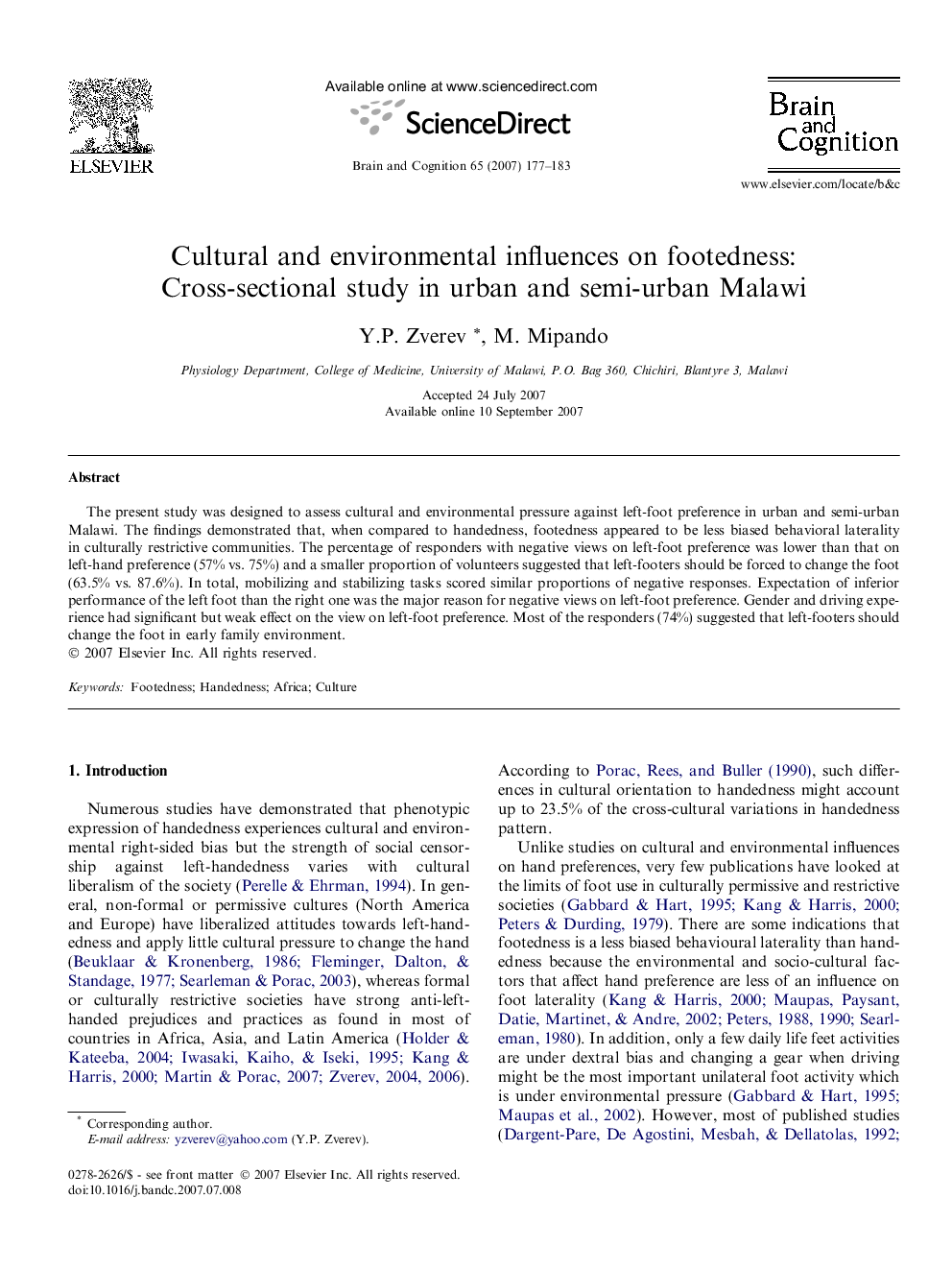| Article ID | Journal | Published Year | Pages | File Type |
|---|---|---|---|---|
| 925035 | Brain and Cognition | 2007 | 7 Pages |
The present study was designed to assess cultural and environmental pressure against left-foot preference in urban and semi-urban Malawi. The findings demonstrated that, when compared to handedness, footedness appeared to be less biased behavioral laterality in culturally restrictive communities. The percentage of responders with negative views on left-foot preference was lower than that on left-hand preference (57% vs. 75%) and a smaller proportion of volunteers suggested that left-footers should be forced to change the foot (63.5% vs. 87.6%). In total, mobilizing and stabilizing tasks scored similar proportions of negative responses. Expectation of inferior performance of the left foot than the right one was the major reason for negative views on left-foot preference. Gender and driving experience had significant but weak effect on the view on left-foot preference. Most of the responders (74%) suggested that left-footers should change the foot in early family environment.
